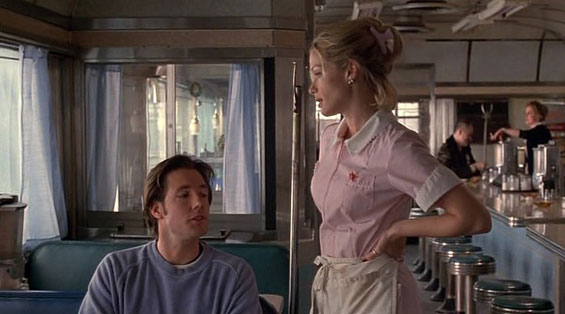
fciwomenswrestling.com article, pixabay.com pexels.com photo credit
Situations, situations, situations.
They tend to fall into three life categories,
We love our life and love our situation.
We love our life but hate our situation.
We hate our life and hate our situation.
Fair enough?
We meander to the celluloid world to, well, try and understand the point of our situations in life because no matter the situation we are in life, we will either have to compromise or improvise to escape an undesirable fate.
In the 1998 Thriller Frantic, it was the story of a Doctor who has a fantastic job that involved global travel, a beautiful wife, in short he was a man who loved his life and loved his situation until life threw him a curve.

To solve his problem he was either going to have to compromise or improvise.
Here is the storyline.
Dr. Richard Walker (Harrison Ford) is a surgeon visiting Paris with his wife Sondra (Betty Buckley) for a medical conference. At their hotel, she is unable to unlock her suitcase; and Walker determines that she picked up the wrong one at the airport. While Walker is taking a shower, his wife mysteriously disappears from their hotel room.
Now that’s consider a situation where the person involved loved their life but hated their situation.
The film is titled Sugar Babies. First the storyline at lifetime.com.
“Katie Woods just transferred from community college to Montlake University for their renowned art history program, but campus life is proving more expensive than Katie anticipated. In class, she meets Tessa and is introduced to Tessa’s high-class, expensive lifestyle… all paid for by her older, and richer, boyfriend Leo. While impressed by Tessa’s cultured tastes, Katie is skeptical about the relationships Tessa and her friends pursue– until Katie gets the opportunity of a lifetime to study in Florence, but realizes there is no way she can afford to go. She agrees to Tessa’s suggestion to join her on a double date and, against her better instincts, finds herself falling for Giles, a British businessman who is handsome, successful, and able to write a check to make Katie’s dreams of Florence come true. But Katie soon realizes that having a Sugar Daddy comes at its own price. Alyson Stoner, Tiera Skovbye star. (2015)”
Katie loved her parents and family but hated her situation so much that it impelled her to delve into the world of the Sugar Babies.
Now that is what I call improvising.
Don’t worry. As usual with a Lifetime movie, there is a fairytale ending. Still, loved this sugary sweet girlie tale.
Well you knew we would get her soon enough.
A story where our heroine hates her life and hates her situation even more.
We find ourselves back in 1998 again. Here we go.
No Looking Back is a 1998 American drama-genre film directed, written, produced by, and starring Edward Burns. The film centers on the relationship of Charlie (Burns) and Claudia (Lauren Holly). The film had a limited theatrical release and grossed less than $250,000 domestically from its $5 million budget.

Now that’s a bad real life situation.
In this sad, depressing but very engaging tale, Claudia, (Holly) it turns out, is a waitress in the small-town luncheonette, complete with skirted pink uniforms and is Charlie’s high school sweetheart, whom he left behind in the wake of an unwanted pregnancy and abortion. Charlie visits Claudia at work despite his knowledge of her relationship with Michael. Still hurt from Charlie’s post-high school departure, she tells Charlie to leave her alone. Stuck there most of her life and as her 30th birthday approaches, Claudia dreams of bigger things, but is afraid to take a chance.
Having said all of that, if she truly wants to change her life, she had better improvise.
What about us in real life? What about your life?
Which of the above three scenarios do you fall into?
Are you a person who will compromise, which often is a slow death and a non-solution, or will you take a risk and improvise to change your life and situation with no guarantees?
Does this apply to our competitive female grappling industry?
Of course it does.
A sweet girl comes to mind.
Of course.
Isn’t the story of situations that need change always about a sweet girl?
When sweet Evadne decided to wrestle Minxy Li of Great Britain and Daisy Ducati of San Francisco, she was a girl who truly needed to improvise.
Here are the match descriptions.
“Minxy Li vs Lady Evadne: When British Super Star Minxy Li puts on her battle fatigues, watch out. Erotic Nor Cal girl Lady Evadne gets caught in the cross hairs and is erotically dominated by the UK veteran from start to finish. Watch two shapely women in engagement that is lesson in domination with an international twist complete with face sits.”
To put it mildly, Evadne was unable to improvise and unfortunately could not compromise.
In the next match she was able to improvise.
“Daisy Ducati vs Lady Evadne: Daisy Ducati has risen to the level of one of the elite female submission wrestlers in the world. We have worked with sexy Nor Cal girl Lady Evadne before and loved every minute of it. She puts up a good fight. Against Daisy however initially it was clear that she was in over her head. Thus we implemented some new and legitimate rules that gave Evadne a fighting chance and the match tightened up. Two San Francisco Bay Area beauties wrestle it out in close up ground level action. Purchase, relax and enjoy”.
These two real life situation matches can be found at:
http://grapplingstars.com/fvsf-wrestling-videos/
So much of life is about perspective and improvising.
We’ve brought another point of view into the game.
Some would say that when we face tough situations in life, especially emotionally speaking, it is advisable to improvise and not take the road to slow death……compromise.
Why Improvisation Matters: Uncertainty Is The “New Normal”

For the third time since it opened Off-Broadway, I recently saw The 39 Steps – in which 4 actors by play multiple roles within the same scene and sometimes in the same sentence – to tell a complex spy story based on an early Alfred Hitchcock film. Balancing slapstick comedy with communication of important details about a complicated plot, the cast displays a seemingly infinite capacity to switch gears – and hats and identities, including accents – with split-second timing, and to use the same objects in a thousand different ways. Using a few set pieces -e.g. chairs, boxes, flashlights – and the actors’ physical commitment to the scene, we experience a chase atop a moving train, a car, a Scottish farmhouse on the windy moors, and the London Palladium among many others. This hilarious and inventive show demonstrates the power of improvisation to create new worlds by renaming, recombining, and reinventing what already exists, to imagine and realize unlimited possibilities by working within clearly-defined boundaries. This is key to the way we design our future in the real world, especially now when so many of us are having to adapt to changes we never anticipated would complicate our lives, and make the most out of existing resources.
These actors’ ability to move in and out of various identities is a “quick-change” skill developed and expanded through training in improvisation and theater games. And as actors on the stage of 21st century life, in which uncertainty is the “new normal,” we need exactly that kind of creative competence. Of all the experiential methods I have studied over the past 25 years – which include music therapy, theater, psychodrama, and writing – improvisation emerges as the most effect match for the urgency, pace of change and unique challenges of life in these times.
Technology has dissolved the old boundaries of time and space, there is no box to think out of anymore, and in today’s world mental health has more to do with our capacity to connect with an increasingly complex social world, manage uncertainty and exploit the opportunities for growth and expansion within the unpredictable and unfamiliar than it does with symptom reduction. Improvisation accomplishes this and more with a generous dose of humanity, humor, and warmth.
The May/June 2010 issue of the Ivey Business Journal promotes music and theater improvisation as a way to “learn a great deal about flexibility and agility in the face of ambiguity and time pressure. Consider jazz musicians, who jam, or work collaboratively to co-create music in real time. Or consider the theatre improviser who doesn’t have a script but creates the storyline with the other improvisers. The improvisers have learned to deal with diversity, ambiguity, interconnectedness and flux.”
As free-lancers and independent contractors progressively make up more and more of the workforce – recently estimated at 35% with business leaders predicting this trend will continue-rapidly evolving technologies and seismic economic and social shifts are redefining the rules and the structures through which we create our professional lives. With uncertainty as the new normal, improvisers have a significant advantage as we live through this great reshaping of the way things work. The mind and skill set gained through improvisation-based training is ideally matched to meet intensifying demands for innovative and inventive thinking on the fly, the ability to break down barriers to people across a wide range of social and cultural gaps, reach for resources and search for hidden connections linking “what is” to “what is emerging,” to new directions and inventive solutions that are the mark of innovation.
Jude Treder-Wolff, LCSW, RMT, CGP designs and conducts creative, experiential groups for professional and personal development, featuring applied improvisation, story-telling, and journaling for self-awareness and self-empowerment, and is author of book Possible Futures: Creative Thinking For The Speed of Life.
~ ~ ~
http://www.mylifetime.com/movies/sugar-babies
http://ezinearticles.com/?Why-Improvisation-Matters:-Uncertainty-Is-The-New-Normal&id=5464258
Article Source: http://EzineArticles.com/expert/Jude_Treder-Wolff/95536
Article Source: http://EzineArticles.com/5464258



